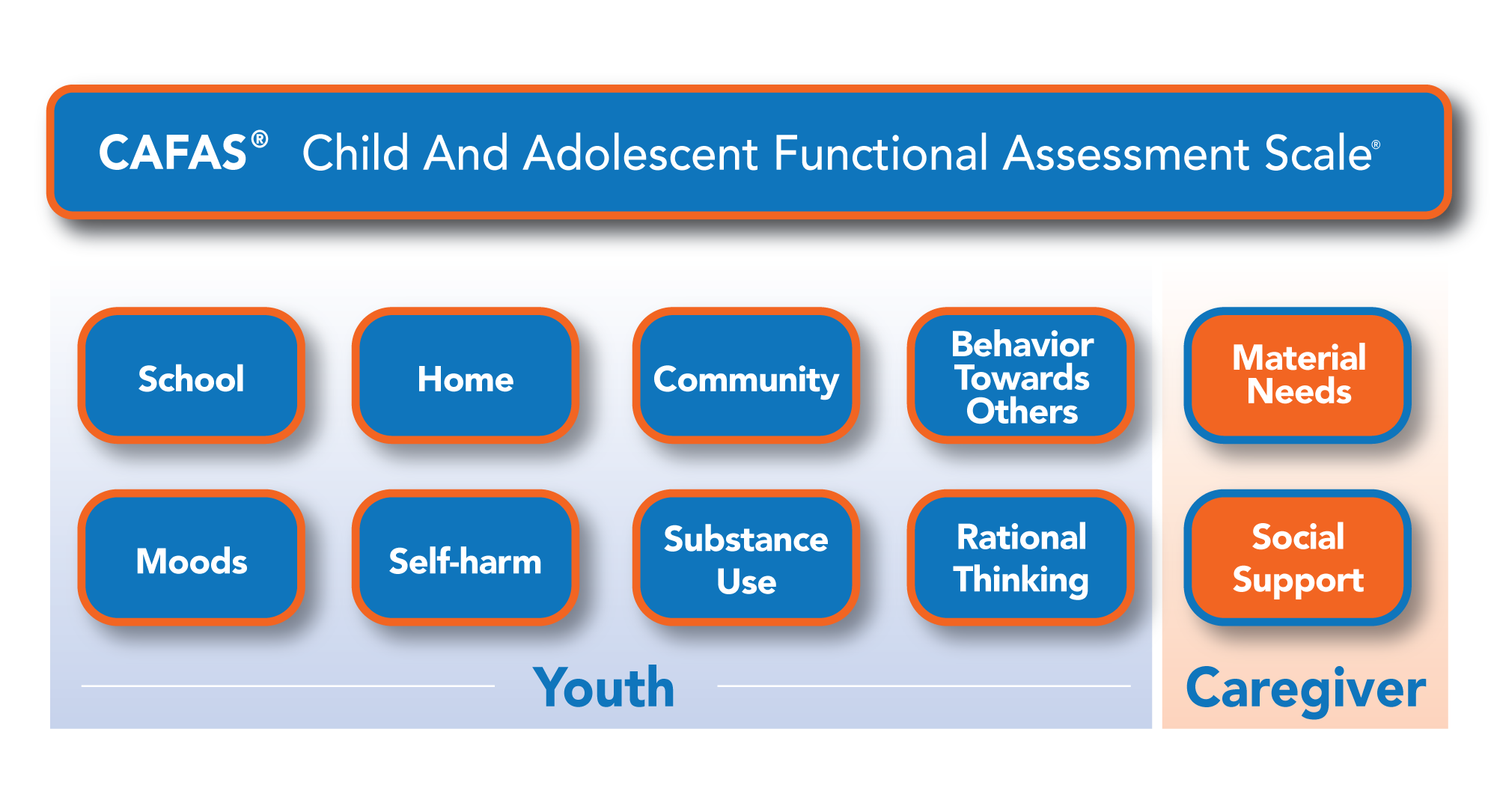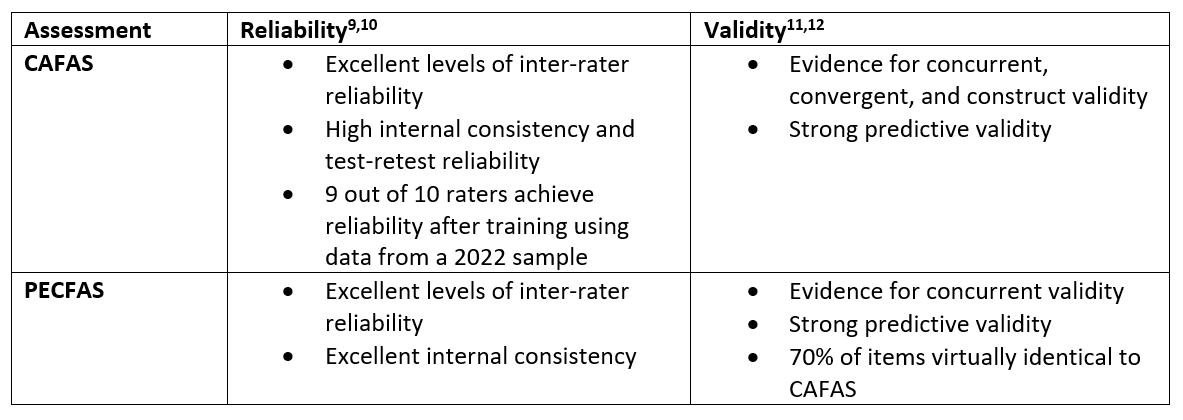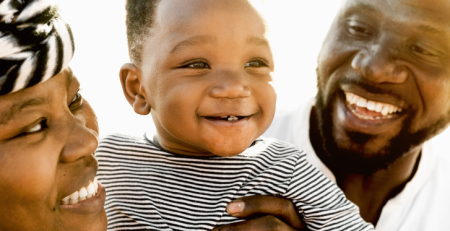Assessing Youth Functioning, Strengths, and Goals: CAFAS and PECFAS
Key takeaways:
- The CAFAS and PECFAS are vital tools for mental health professionals to assess youth functioning, strengths, and goals, aiding in treatment planning and outcome evaluation across various domains.
- Developed by Dr. Kay Hodges, these assessments streamline decision-making processes by informing treatment type and intensity, level of care, and progress evaluation over time.
- With strong reliability and validity supported by over 25 years of research, CAFAS and PECFAS have positively impacted youth across mental health, juvenile justice, education, and child welfare sectors, enhancing overall well-being through evidence-based practices.
What are the CAFAS and PECFAS?
Mental health practitioners encounter diverse critical requirements when assisting the youth under their care, including treatment eligibility determination, treatment planning, and outcome evaluation services. To best serve these needs, access to robust measurement-based care data is required. The Child and Adolescent Functional Assessment Scale® (CAFAS®) is an assessment used to assess a youth’s day-to-day functioning and track changes in functioning over time. The CAFAS, intended for use with youth aged 5 to 19 years, is a clinician-rated measure that assesses the degree of impairment in youth with emotional, behavioral, or substance use symptoms/disorders. The preschool version of the CAFAS, the Preschool and Early Childhood Functional Assessment Scale® (PECFAS®), evaluates how children aged 3 to 7 years handle everyday tasks, like following rules within a daycare setting or at home and navigating their feelings.
The clinician rates the CAFAS and PECFAS based on their knowledge of the client’s functioning, including information obtained through clinical interviews. The results of this assessment allow the clinician to gain a rapid visual profile of problem areas across settings. The CAFAS is arranged in eight subscales for rating the child: School/Work, Home, Community, Behavior Towards Others, Moods/Emotions, Self-Harmful Behavior, Substance Use, and Rational Thinking. There are two optional scales for rating the youth’s caregivers on their ability to provide for the youth’s material and emotional needs.

What value do the CAFAS and PECFAS add?
Developed by Dr. Kay Hodges, the CAFAS and PECFAS revolutionized multi-dimensional assessments for youth by offering mental health professionals the ability to easily report on program effectiveness and outcomes. The measures provide mental health professionals a window into treatment decision-making in just 10-15 minutes.
Insights from the measures can inform:

Rather than just identifying symptoms to satisfy diagnostic criteria, the CAFAS and PECFAS focus on whether behaviors or feelings impair functioning across selected life domains. This is vital to reduce time spent collating client data from paper and digital sources. Caseworkers will appreciate the time saved associated with the data reporting abilities of the CAFAS and PECFAS, especially considering recent research into caseload and workload management among therapists1,2,3,4,5.
Client data can be exported for further data analysis and to explore outcomes. For example, one user of the measures utilizes the extensive outcome reporting features to export client data from 55 CAFAS and 51 PECFAS sites. The exporting process is completed quickly utilizing Functional Assessment Systems (FAS) Outcomes, a comprehensive client management portal that offers quick and easy data export functionality. Data is exported, analyzed using a statistical package, and presented to key stakeholders to showcase pre- and post-outcomes. Agencies can then render insights into program evaluation, evidence-based treatments, and evidence-informed practice. Mental health professionals can rest assured that the CAFAS was validated in large-scale studies and is commonly used for these discussions6,7,8.
Collaborative use of the CAFAS and PECFAS
The assessments were designed to be used collaboratively with members of a care team, youth, and their families to consider multiple perspectives on the severity of the presented emotional or behavioral problems. Identifying needs and strengths is also paramount for this collaborative process, where caregivers and case workers can work together to identify and foster burgeoning strengths. This approach is helpful in juvenile justice settings as well, where functional impairment, needs, and strengths are encouraged to be considered in case management and treatment planning.
Are the CAFAS and PECFAS reliable and valid?
Both measures are supported by over 25 years of research into their reliability and validity, as well as 80 peer-reviewed published articles.

How have the CAFAS and PECFAS helped youth?
The CAFAS and PECFAS have had a positive impact on youth with emotional or behavioral problems who are receiving services from mental health, juvenile justice, education, and child welfare providers13. Mental health professionals have used these assessments to help keep children in school/daycare, in their homes, and out of the criminal justice system by collaborating effectively with the youth and their families. Both assessments are reliable and valid, and they document meaningful changes in the day-to-day functioning of youth that will be of interest to mental health professionals. The CAFAS and PECFAS are essential tools that mental health professionals can use to guide treatment planning, implement evidence-based treatment, and provide a direct path for evidence-informed practices that will improve the well-being of our youth.
Interested in learning more about the CAFAS and PECFAS? Get in touch with a member of our team today.
References
1 Bailey, R. J., Erekson, D. M., Goates-Jones, M., Andes, R. M., & Snell, A. N. (2021). Busy therapists: Examining caseload as a potential factor in outcome. Psychological Services, 18(4), 574–583.
2 Adler, D. (2020). Burnout: Old Wine in New Bottles. Psychiatric Services, 71(3), 217–218.
3 Claponea, R. M., & Iorga, M. (2023). Burnout, Organizational Justice, Workload, and Emotional Regulation among Medical and Non-Medical Personnel Working in Romanian Healthcare Units. Behavioral Sciences, 13(3).
4 Salyers, M. P., Rollins, A. L., Kelly, Y. F., Lysaker, P. H., & Williams, J. R. (2013). Job satisfaction and burnout among VA and community mental health workers. Administration and Policy in Mental Health and Mental Health Services Research, 40(2), 69–75.
5 Forman-Dolan, J., Caggiano, C., Anillo, I., & Kennedy, T. D. (2022). Burnout among Professionals Working in Corrections: A Two Stage Review. International Journal of Environmental Research and Public Health, 19(16).
6 Breda, C.S. (1996), Methodological issues in evaluating mental health outcomes of a children’s mental health managed care demonstration. The Journal of Mental Health Administration, 23(1), 40–50.
7 Manteuffel, B., Stephens, R. L., & Santiago, R. (2002). Overview of the National Evaluation of the Comprehensive Community Mental Health Services for Children and Their Families Program and summary of current findings. Children’s Services: Social Policy, Research, & Practice, 5(1), 3–20.
8 Rosanbalm, K. D., Snyder, E. H., Lawrence, C. N., Coleman, K., Frey, J. J., van den Ende, J. B., & Dodge, K. A. (2016). Child wellbeing assessment in child welfare: A review of four measures. Children and Youth Services Review, 68, 1–16.
9 Marti, F. A., Pourat, N., Lee, C., & Zima, B. T. (2022). Overview of Ten Child Mental Health Clinical Outcome Measures: Testing of Psychometric Properties with Diverse Client Populations in the U.S. Administration and Policy in Mental Health and Mental Health Services Research, 49(2), 197–225.
10 Murphy, J. M., Pagano, M. E., Ramirez, A., Anaya, Y., Nowlin, C., & Jellinek, M. S. (1999). Validation of the Preschool and Early Childhood Functional Assessment Scale (PECFAS). Journal of Child and Family Studies I, 8(3), 343–356.
11 Vogel, A. C., Jackson, J. J., Barch, D. M., Tillman, R., & Luby, J. L. (2019). Excitability and irritability in preschoolers predicts later psychopathology: The importance of positive and negative emotion dysregulation. Development and Psychopathology, 31(3), 1067–1083.
12 Hodges, K., & Kim, C.-S. (2000). Psychometric Study of the Child and Adolescent Functional Assessment Scale: Prediction of Contact with the Law and Poor School Attendance. Journal of Abnormal Child Psychology, 28(3), 287–297.
13 Hodges, K. (2004). The Child and Adolescent Functional Assessment Scale (CAFAS). In M.E. Maruish (Ed.). The Use of Psychological Testing for Treatment Planning and Outcomes Assessment: Volume 2(3rd ed.,pp. 405-441). Routledge.










